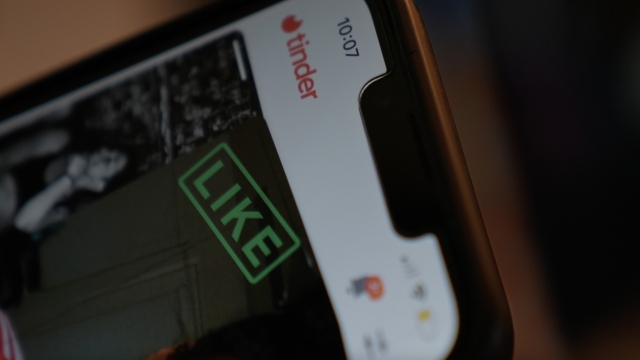During the pandemic, people turned to dating apps to meet people while quarantined, and new data shows that trend could be here to stay, as people are continually using the apps to find love.
According to the Business of Apps, global revenue from dating apps such as Bumble, Tinder, Hinge and Grindr has grown from $1.6 billion in 2015 to $4.9 billion in 2022. However, new research shows the apps are associated with negative mental health effects.
According to a study published in the International Journal of Environmental Research and Public Health, there is a link between using dating apps and experiencing loneliness, dissatisfaction with life and feeling excluded from the world. The research points out that it is a paradox, as people have more ways to connect than ever before yet many of those connections can feel empty, fleeting, and insecure.
SEE MORE: Why are age-gap relationships controversial?
"It gives me anxiety," said Kelsey Perkins, a 31-year-old who has been using dating apps for the last five years. "It's so much work to date these days. Very superficial conversations. It's such a waste of time."
"The studies are interesting on [dating apps]," added Steve Carleton, a professor of social work at the University of Denver. "It's not good for you, psychologically. If you're someone that struggles with feelings of rejection and feeling left out and not being accepted, these apps can only make those narratives in your head worse because there is a tremendous amount of rejection and people ghosting you and not responding."
According to the Therapy Group of NYC, researchers found low rates of matches from potential partners, especially for men. The study also found that approximately 50% of matches do not message back. As a result, dating app users are constantly being "disliked" or ignored, contributing to feelings of anxiety and depression.
SEE MORE: Using the word 'love' in a dating profile gets you more matches
This is not to say there are no positive outcomes with dating apps. According to Pew Research, about 30% of adults say they have used dating apps at one point or another, and about 1 in 5 relationships begin on them today.
Carleton points out receiving "likes" or matches can provide an ego boost, something Perkins says she experiences, alongside the negative feelings.
"I mean I could go on a date right now from a dating app if I wanted. It's just the outcome that never is good," said Perkins. "You don't really talk to them for a long amount of time. It's like, 'Do you want to get a drink?' And then, they're always usually weird."
SEE MORE: US surgeon general says loneliness is as deadly as smoking
Trending stories at Scrippsnews.com




